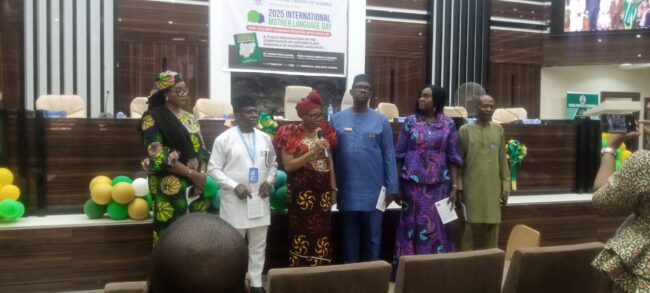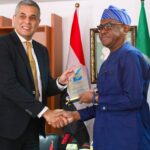•launches compendium of alphabets, numerals of Nigerian languages
The National Librarian and Chief Executive Officer of the National Library of Nigeria (NLN), Professor Chinwe Anunobi has raised concerns that at least 29 of Nigerian spoken languages are critically endangered, with some, like Njerep and Ichen, on the brink of extinction.
She said this on Friday in Abuja at the 2025 International Mother Language Day, with the theme: ‘Silver Jubilee Celebration of International Mother Language Day’.
NLN at the event formally launched its compendium of Alphabets and Numerals of Nigerian languages. The compendium brings together for the first time, the alphabets and numerals of some languages, showcasing the complexity and beauty of Nigeria’s linguistic landscape.
ALSO READ FROM NIGERIAN TRIBUNE : Oyo govt tasks parents on promotion of indigenous languages
Anunobi emphasised the critical role of mother languages in shaping the identity, culture, and development of all nations, hence in 1999 UNESCO designated the 21st of February every year as a mother language day.
She added that leveraging on that UN put forward 2022- 2032 as an International decade of indigenous languages all aimed at preserving and promoting the language heritage of nations of the world.
She, therefore, called for concerted efforts to revitalize, promote and preserve Nigeria’s languages, she noted are an identity of the country, while also expressing the need to push forward and harder with a view to overcome the monster of losing the nation’s identity.
She said: “Nigeria with over 563 indigenous languages as shown in the map of Nigeria Languages has at least 29 of her languages critically endangered, with some, like Njerep and Ichen, on the brink of extinction.
“This loss would not only diminish our cultural heritage but also rob future generations of indigenous knowledge systems and traditional wisdom encoded in these languages.”
According to her, research shows that children learn best in their mother’s language during the early years of education, saying United Nations Educational Scientific and Cultural Organization (UNESCO) also affirmed that providing education in a learner’s first language improves cognitive development, fosters creativity, and enhances overall academic performance.
She, however, noted that in many parts of the world, including Nigeria, there is a growing shift towards dominant languages, leading to the marginalization of local tongues or indigenous languages thereby undermining the rich wisdom that they impart.
She underscored the importance of promoting mother languages not only for cultural preservation but also for achieving the Sustainable Development Goals (SDGs), particularly SDG 4, which emphasizes inclusive and equitable quality education for all.
“Hence the National Library of Nigeria in the pursuit of the sixth focus and agenda of the National Librarian/CEO which is to enhance Literacy Sensitization and Encourage Documentation of Family Heritage in Indigenous Languages has been at the forefront of efforts to safeguard, promote the use and preservation of Nigeria’s linguistic diversity,” she said.
Various stakeholders at the event called on parents to speak their mother tongue at home, pass it down to the children as a gift of identity, while urging educators to incorporate local languages into the curriculum.
WATCH TOP VIDEOS FROM NIGERIAN TRIBUNE TV
- Relationship Hangout: Public vs Private Proposals – Which Truly Wins in Love?
- “No” Is a Complete Sentence: Why You Should Stop Feeling Guilty
- Relationship Hangout: Friendship Talk 2025 – How to Be a Good Friend & Big Questions on Friendship
- Police Overpower Armed Robbers in Ibadan After Fierce Struggle






